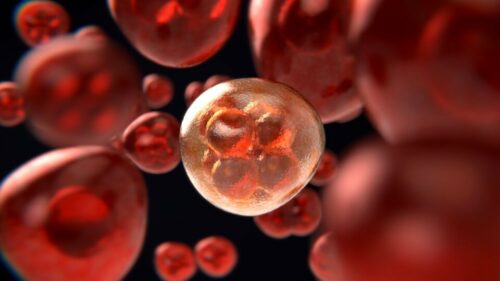Image Courtesy of Creazilla.
In a world where cancer claims millions of lives every year, a pioneering study by Yale’s Krishnaswamy lab in collaboration with the University College London Cancer Institute shines a beacon of hope by introducing a novel method that personalizes cancer therapy based on a patient’s unique genetic profile.
Their study employed patient-derived organoids (PDOs) and cancer-associated fibroblasts (CAFs) to replicate the tumor’s environment in the lab. PDOs are small, lab-created structures that simulate the complexity of real tumors, while CAFs are cells within tumors that aid cancer growth. By employing heavy metal labels for molecular analysis and a unique data analysis system named “Trellis,” the team tracked each cell’s drug response, identifying those resistant to chemotherapy for targeted future treatments.
Alexander Tong GSAS ’20 and ’21, a former graduate student in the Krishnaswamy lab and an author of the study, emphasized the potential of this approach. “The closer we can get our models to the tumor microenvironment, the closer we can get to treating patients individually,” Tong said.
This research represents a significant shift from the one-size-fits-all approach to cancer treatment, focusing instead on the specific genetic landscape of each patient’s tumor. It is a crucial step forward in combating drug resistance and boosting the effectiveness of cancer therapies.
In the future, the team aims to refine its methodology by developing sophisticated algorithms to accurately predict treatment outcomes for diverse patient profiles, drug combinations, and therapeutic strategies. This computational innovation could greatly reduce the reliance on extensive data collection, leading to more efficient treatment plans and optimizing the path toward individualized cancer care.

